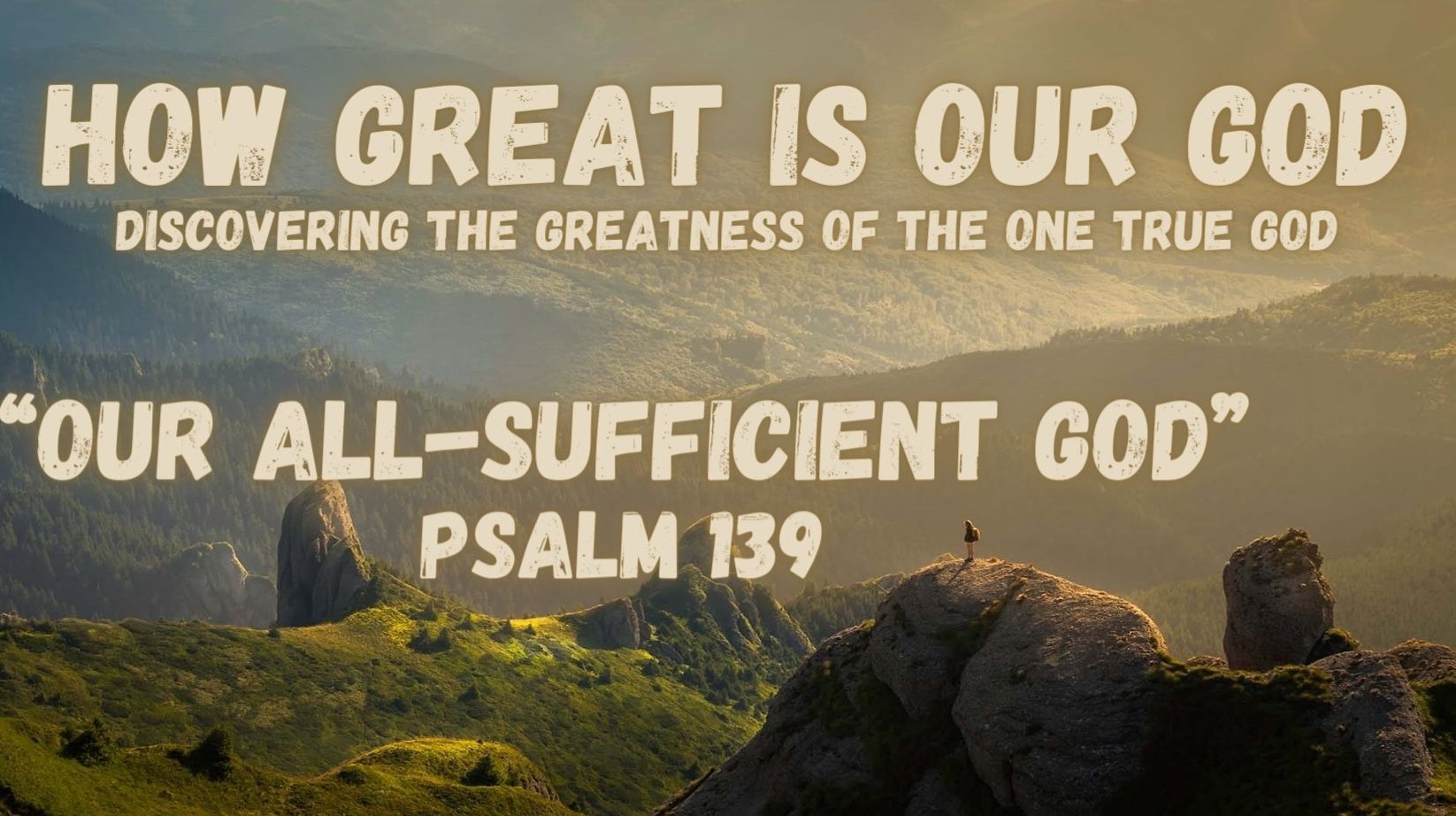Psalm 139:1-12
O lord, thou hast searched me, and known me. 2 Thou knowest my downsitting and mine uprising, thou understandest my thought afar off. 3 Thou compassest my path and my lying down, and art acquainted with all my ways. 4 For there is not a word in my tongue, but, lo, O Lord, thou knowest it altogether. 5 Thou hast beset me behind and before, and laid thine hand upon me. 6 Such knowledge is too wonderful for me; it is high, I cannot attain unto it. 7 Whither shall I go from thy spirit? or whither shall I flee from thy presence? 8 If I ascend up into heaven, thou art there: if I make my bed in hell, behold, thou art there. 9 If I take the wings of the morning, and dwell in the uttermost parts of the sea; 10 Even there shall thy hand lead me, and thy right hand shall hold me. 11 If I say, Surely the darkness shall cover me; even the night shall be light about me. 12 Yea, the darkness hideth not from thee; but the night shineth as the day: the darkness and the light are both alike to thee.
God is perfectly sufficient within Himself. He is sufficient for all things. As the eternal Creator and sovereign over all things, He lacks nothing in character, attributes, knowledge, wisdom, presence, or power. The 139th psalm addresses attributes of God that are labeled by terms beginning with the prefix, “omni.” “Omni” means all. In this psalm, we see God clearly revealed as “all-sufficient.” What makes Him all-sufficient? In Psalm 139 David points out three attributes of God that make Him so. The first two are unpacked in verses 1-12. The last one is revealed in verses 13-24. We will look at the first two this week.
First, God is omniscient. Omniscient comes from the prefix, “omni,” which means all and the word “science” which means knowledge. God’s omniscience means that He is all-knowing. There is nothing that God does not know. In this psalm of praise, David writes the first six verses about God’s complete knowledge of him. The “downsitting” and “uprising” describe the ordinary events of the day of a person’s life. The “path” and “lying down” describe one’s public and private life. To summarize, God knows all that we do, wherever we may be, or whatever we may be doing. Even the very words that we speak are known to God before we ever speak them. God knows our thoughts and the innermost recesses of our hearts, something we cannot even know completely for ourselves (Jeremiah 17:9). 1 Chronicles 28:9 tells us, “the Lord searcheth all hearts, and understandeth all the imaginations of the thoughts.” Such intimate, complete knowledge is beyond our comprehension. It is amazing to know that God knows everything about us and yet has chosen to send His Son to save us. He is to be trusted with all that we are because He alone knows us completely. The Creator of the universe is all-knowing.
God is not only all-knowing, but He is also omnipresent. That means that God is ever-present. David asks the questions, “Whither shall I go from thy spirit? Or whither shall I flee from thy presence?” in verse 7. These are rhetorical questions with the simple answer, nowhere. There is nowhere that you and I can go and escape God’s presence. He fills all things. David highlights three things that cannot remove us from God’s presence: death (v. 7-8); distance (v. 9-10); and darkness (v. 11-12). In 1 Kings 8:27 we read the words of Solomon, “But will God indeed dwell on the earth? behold, the heaven and heaven of heavens cannot contain thee; how much less this house that I have builded?” If we could travel to the farthest reaches of the universe, we could not escape God’s presence. David even includes “heaven” and “hell” (Sheol) as being places where a person cannot escape God’s presence. Jonah tried to flee from the Lord’s presence and failed miserably. Even in the depths of the sea God sent a great fish to swallow him. Adam and Eve tried to hide from God in Eden and were unable to do so. Even the darkest place cannot hide us from God. During the Tribulation period, people will cry for the mountains and rocks to fall on them to hide them from God and His wrath, but no rock will be able to do so (Revelation 6:15-17). God is ever-present. There is nowhere where He is not. At the same time, we are far from Him relationally apart from Jesus because of our sin, but God is near to those who humbly trust in Him. Psalm 34:18 tells us, “The Lord is nigh unto them that are of a broken heart; and saveth such as be of a contrite spirit.” As a believer, God is with each of us through the indwelling presence of the Holy Spirit (John 14:17) and there is nothing that can separate us from His love (Romans 8:35-39).
The question today is not, “Does God know you?” for He knows all of us and all about us as the omniscient One. It is also not, “Is God near you?” because He is near and around all of us as the omnipresent One. The questions we must ask are “Does God know me in covenant relationship?” and “Is God near me and indwelling me through the person of the Holy Spirit?” Both of these questions are matters of salvation. We can know the all-knowing and be near the ever-present One in a saving way because He sent His Son into the world to reconcile us to Himself. The time for hiding and evading are over because they are both futile. Instead, let us surrender to Him that we might spend eternity being known by Him and being with Him.






